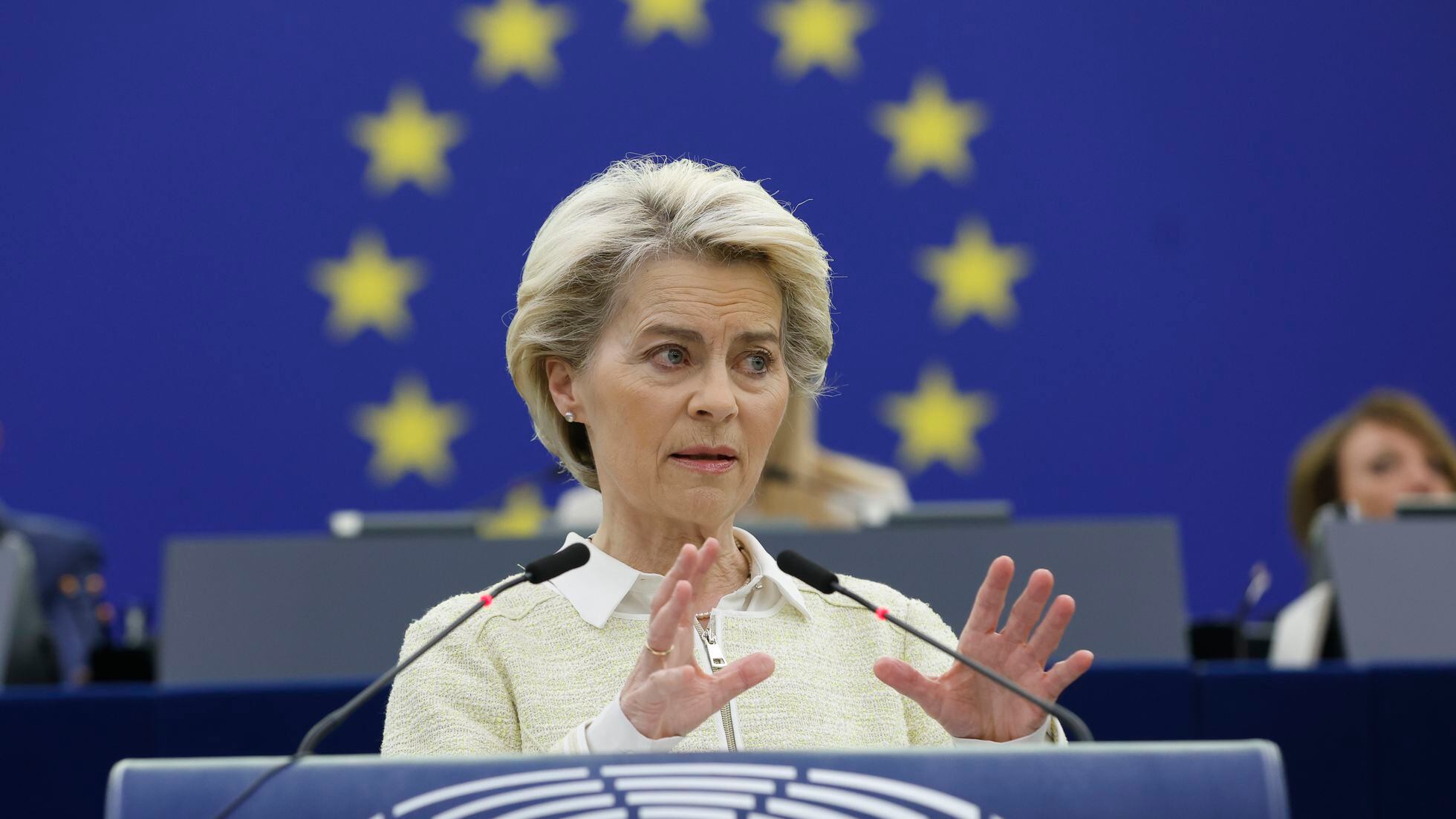After months of debate, the European Union has finally agreed to a sixth package of sanctions against Russia . It will phase out Russian oil imported by sea by the end of the year – albeit with some exceptions for Hungary, Slovakia and the Czech Republic – excludes three banks from the Swift financial messaging system, including Russia’s largest consumer bank Sberbank and punishes three broadcasters controlled by the Kremlin.
Despite the compromises in the final agreement, Europeans may feel that they are closer than ever to their goals of punishing Russia for its aggression in Ukraine and acting as a truly “geopolitical” actor , as the European Commission would like. However, the effects of the package may not be felt immediately or may not have the desired impact in some respects.
Firstly, the EU’s oil ’embargo’ seeks to phase out Russian oil, but proceeds from its sale will continue to flow into Russian coffers for months to come – and even years, given the agreed exemptions. Given their deadlines, these measures could spur further Russian aggression in Ukraine or lead to higher oil prices that allow Russia to offset some of its potential losses. Currently, Russian crude, although considerably below a barrel of Brent, is still trading comfortably above what the Kremlin needs to meet its budget requirements. On the other hand, although the sanctions that the EU has imposed onmaritime trade insurers will make exports considerably more difficult in the future, nor will they make them completely impossible.
The immediate consequences may also be negative for the West . The United States, in particular, has warned of the global consequences of a European oil embargo in a context of high inflation (which takes place, crucially, in the run-up to the mid-term elections in November). The EU may have to accept that other states will not give up cheaper Russian energy and also bear the long-term consequences of sanctions , which complicate calculations for other allied countries. Part of addressing these side effects could be seeking increased seaborne exports, collaborating with other oil-producing nations to increase their supply .and thus reduce the international prices of non-sanctioned fuel.
Second, sanctioning Sberbank will likely only have a modest impact , as the bank itself has had to reorient itself in the wake of US sanctions and now serves domestic clients. Circumstances have cemented the divide between the Western and Russian banking and finance sectors, making cross-border payments very expensive (since Moscow must use alternatives to Swift ). Dealings with Russian entities will become much more difficult, as banks outside the Eurasian giant fear being caught out by European and US sanctions. On the other hand, Gazprombank is exempt from sanctions and will likely consolidate its position as it declines.competition for major cross-border payments . Ruble assets held with Russian banks will also continue to solidify, with the exchange rate rising amid huge current account surpluses. That said, Chinese company UnionPay has backed out of a deal to expand its presence in Russia over fears of sanctions, dashing the hopes of Russian banks.
Whether Europeans like it or not, the collective impact of their foreign policy on Russia has drawn the EU into a battle of narratives
Finally, there is the factor of the world food crisis unleashed as a result of the invasion . Russia’s blockade of Ukrainian ports is having consequences at every link in the supply chain , such as India’s decision to ban wheat exports or Argentina’s export quotas. Diplomatic interventions have led to countries already rejecting Russian ships carrying grain from Russia or occupied Ukraine. Importing nations are concerned that sanctions will seriously complicate payment for non-sanctioned products and will seek alternative producers. But as prices go even higher, stocks go downand major government interests come under pressure, they might also decide they have no choice but to buy from Russia. Whether Europeans like it or not, the collective impact of their foreign policy on Russia has drawn the EU into a battle of narratives .
To offset this and maintain the potential of their foreign action, including the use of sanctions, Europeans should look for ways to help affected countries, such as offering financial assistance to help with rising food prices. In the medium term, they can also seek measures to increase domestic production. Furthermore, the EU should work to ensure that partner countries see this effort in action, thereby combating the Russian narrative that the West is an obstacle to tackling rising prices rather than part of the solution.
But they need to start providing aid on a larger scale now, not several months from now. Many states do not care who is to blame for the crisis , as Senegalese President and African Union President Macky Sall recently demonstrated when he met with Vladimir Putin and repeated Russia’s words about lifting Western sanctions . The West must help and be seen as such . The Europeans must also avoid imposing export restrictions, which would solidify the narrative of an indifferent West , unless they can provide relief by unlocking trapped Ukrainian exports at the same time.
The sixth package of EU sanctions reinforces the economic pressure on Russia . It tackles oil imports for the first time and excludes one of the last big Russian banks from the Swift system. The economic consequences of the measures have not yet been fully developed, but they will structurally weaken the Russian economy by further severing its ties with Europe and the Western world. They will also make it more difficult for Russia to do business with other parts of the world. Whether this will change the Kremlin ‘s calculus and the military decisions it makes is another question. For Russia’s economy, the future looks bleakregarding its international exposure, but on the domestic front it is showing more resistance at the moment. The economic consequences weigh differently on the Russian strategy than if the same thing happened to a European country.

